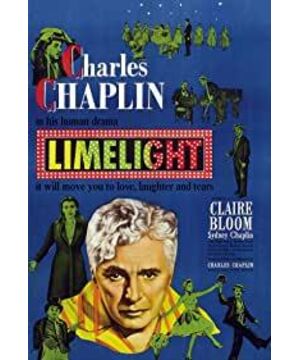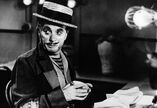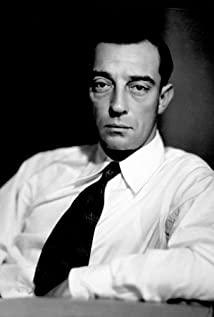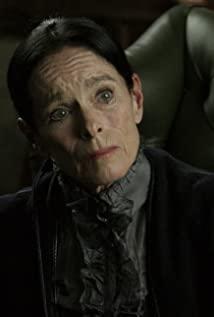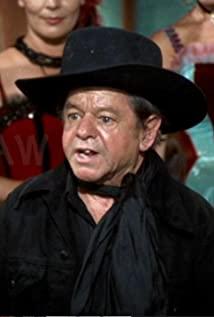Text / Yang Daxia
1. A silent film into history
In 1926, the world's first sound film "The Swordsman Don Juan" was released in the United States, and silent films began to enter history.
Seeing more and more directors making sound films, Charlie Chaplin scolded:
“There were a few people sitting there with headphones on, dressed like warriors from Mars; microphones hanging above the actors like fishing hooks. It’s such a complex and haunting scene. Frustrated. Who can be creative in the midst of all this junk?"
He insisted on shooting silent films such as "Circus" and "City Lights". Although he received rave reviews, he also suffered a lot of criticism. The new generation who grew up watching talkie movies shook their heads at Chaplin's silent films: "Why do they only gesture and don't speak?"
In 1940, Chaplin gave up his insistence on silent films and made "The Great Dictator" - his first sound film. A few years later, he made "Monsieur Verdu". He once hated the sound film so deeply, but he eventually became a part of the sound film; his persistence was finally defeated by the ruthlessness of film history.
In 1952, Chaplin's third sound film, "Stage Spring and Autumn", was released in the United Kingdom. Although he also made two films in the later period, there is no doubt that "The Spring and Autumn on the Stage" is his last tribute and the curtain call of his stage career.
"The Spring and Autumn on the Stage" is Chaplin's autobiographical film, in which he played a clown actor, showing the scenery in his early years and the embarrassment in his later years.
Although this is a sound film, the most exciting part of it is the silent scene where the clown doesn't say a word on stage.
That was Chaplin's last insistence on silent films.
The sound film is the unstoppable countercurrent of film development and the indescribable sorrow of silent film directors.
And what Chaplin showed is that even if the change of the world cannot be stopped, at least don't let the world change itself; a person can make concessions for life, but he can at least choose to be loyal to his own last stubbornness.
2. The Evicted Homeless
In 1952, after the filming of Spring and Autumn on the Stage, Chaplin took his family by boat to various European countries to hold the premiere.
One day, when the ship sailed somewhere in the Atlantic, he received a statement from the U.S. government: Chaplin was not allowed to enter the U.S. for transit; once he entered the country, there was no reason to arrest him.
"Stage Spring and Autumn" was filmed in the United States, but could not be released in the United States. It was not until 20 years later, in 1972, that the ban on Chaplin was lifted in the United States, and "Stage Spring and Autumn" was released in Los Angeles and other cities one after another.
For 20 years, Chaplin was like a tramp who was expelled by the US government and hid in Tibet.
In fact, as early as 1920, Chaplin became the subject of investigation by the US government.
At that time, the United States was experiencing a surge of unemployment, and the streets were full of homeless people.
Chaplin had just come to America at the time. He came into contact with something called "communism" and said excitedly:
"I want every child to have enough food, shoes on their feet, and a roof on their head. Communism will change everything and end poverty."
At that time, Chaplin had made several silent films such as "The Tramp", the themes of which were without exception sympathy for the poor and criticism of capitalism. "I was like someone who was forever haunted by a spirit, a poor, poor spirit," he said .
At the time, "in far corners of the world there were men and women who had never heard of Jesus Christ; however, they knew and loved Chaplin."
To this end, the FBI began to investigate the "tramp" with communist tendencies, but Chaplin was not a member of the Communist Party, and the FBI found nothing.
After escaping FBI investigation, Chaplin began a new round of speeches. In 1942, as a "comrade", he said to the masses: "The Communist Party is an ordinary person like us who loves beauty and loves life."
When asked if he knew the Austrian communist musician Hans Eisler, he replied:
"Eisler is my friend and I'm proud of that fact."
A few months later, Eisler was deported from the United States.
Chaplin's good days are coming to an end soon.
In 1947, his second sound film, Monsieur Verdu, was released in the United States.
In the film, Verdue, played by Chaplin, was an exploited bank clerk who worked sincerely for 30 years, but was fired by the bank. In order to make a living, Verdu went down the road of crime. After his arrest, he was sentenced to death. Verdu said:
"Kill one person and call him a criminal, kill millions and call him a hero. In this world, as long as you have power, you can succeed..."
These communist words have become a weapon for the US government to counterattack. "Mr. Verdue" was banned in the United States, and Chaplin was banned from working in Hollywood.
He was very dissatisfied, and published an article in a Paris newspaper called "I Declared War on Hollywood", denouncing the suppression he suffered;
"Stage Spring and Autumn" was shot by Chaplin during the period after he was suppressed by the government and before he was expelled. The film is not as sharp as it used to be, without its political leanings, and you can see his surrender—to the sound film, and to the U.S. government.
However, in the film, he used the clown's mouth to say: "I am that tramp."
He is still the "tramp" haunted by the spirit of poverty and poverty.
In front of the U.S. authorities, he was small and pitiful, like a leaf in the ocean, coming and going without a reason, unable to live or die.
He couldn't choose the era he was in, but he chose to do something for this era and for the poor people.
He could not change the fate of being expelled, but he chose to burn the mayfly's determination and poetry to cross the sea in his wandering heart.
3. Meet and smile
As the saying goes, there is no room for two tigers in one mountain.
During Chaplin's time, he had a formidable nemesis, Buster Keaton .
In 1920, Chaplin was already well-known around the world; Keaton was just entering the film and television industry at that time. Because Keaton was battered and beaten from an early age, the film company Paramount put him in action-comedy films.
In those two years, Keaton made 19 comedy short films, and he quickly conquered American fans with his acrobatic skills. In 1923, Paramount decided to let him shoot a feature film, funded to help him establish the "Buster Keaton Film Company", and granted him all autonomy.
At that time, Chaplin had just established his own film company. Due to inexperience, Chaplin's company encountered many problems in the early days, and several films were either unfinished or failed to pass the review. In three years, only one work, A Woman in Paris, was completed.
After Keaton owned his own company for free, he quickly occupied the screen of comedy genre films in American cinemas at an average rate of two films a year. His representative works "Hospitality" and "Sherlock Holmes II" were all completed during that time.
Unlike Chaplin's clown makeup, Keaton is a natural cold-faced comedian; unlike Chaplin's humanistic feelings, what Keaton shows is the interpretation of difficult movements and the use of very advanced special effects. If watching a Chaplin movie makes you cry, then watching a Keaton movie makes you sweat and your heart stops. Jackie Chan's action comedy, with many ideas, is based on Keaton's movies.
This refreshing approach to comedy, in Chaplin's absence, catapulted Keaton to become the most popular comedy star of the 1920s.
For a while, Keaton and Chaplin became the deadly enemies of comedy movies. They never let each other enter their own movie world, and each made their own works in their own fields. Chaplin once said in public: "I'm jealous of Keaton's talent."
But in "Stage Spring and Autumn", two long-standing rivals are on the same stage.
The Joker played by Chaplin, and the pianist played by Keaton, on the stage of the last scene of the movie, you come and go, you fight for each other, even though there is only a short ten-minute confrontation between the two heroes, it makes people laugh It has become a classic scene in film history.
Why did decades of "enemies" finally reconcile?
It turned out that at the peak of Keaton's career, his "General" was a box office hit, and Paramount took back its autonomy and suggested Keaton join MGM.
After entering MGM, Buster did not have the technical team and the full support of the company; at the same time, MGM did not know how to use this highly skilled action actor; even worse, with the arrival of sound movies, film shooting A complete script is strictly required. Most of Keaton's previous silent films were improvisations; at the same time, as a silent film actor, it is hard to imagine the difficulty of completing a script full of lines.
Superb action, ultimately lost to touching human feelings; Chaplin is still on the road of freedom and film, and Keaton has become an alcoholic.
But the real hero is always sympathetic; the real master will never really hate another master. Looking at Keaton's downfall, Chaplin let go of his previous grievances and grievances - having a strong enemy is not scary, what is scary is the loneliness of the master.
Therefore, he invited Keaton to participate in "The Spring and Autumn on the Stage", and when they were both over half a hundred years old, they jointly built this unprecedented brilliance.
Chaplin and Keaton can never be friends in this life, they have their own dignity, their own arrogance.
But they chose to meet each other with a smile and ditch their grievances. This choice is a hero cherishing a hero, admiration and awe for each other, an emotion not lost to friendship, and the most perfect curtain call between masters.
It is a very happy thing to make the audience laugh
"It is a very happy thing to make the audience laugh." This is a line of "The Clown" Chaplin in "The Spring and Autumn of the Stage", and it is also his life.
In 1914, when Chaplin put on a black top hat, a gray dress, a bow, and a mustache for the first time, he first appeared in front of the camera of his debut work "Making a Living", and he "made the audience laugh". The original intention, like his outfit, has never changed.
In "Finding Son and Meeting Immortal", he wanted to pass on his father's love, but he made the audience laugh from beginning to end.
In "Gold Digger", he turned the whistling of the north wind on the gold rush road into laughter in front of the screen.
In "City Lights," he filled the bitterness of the homeless with hilarious plots.
In "The Great Dictator", even for the murderous Hitler, he tried his best to make him a witty character.
In "Stage Spring and Autumn", his body became fat, his skin was rough, his face was slack, and he also took off his two beards; but when he appeared on the stage as a clown, his mustache appeared again, and his vitality was renewed. He has recovered, just like his youthful elegance, every move makes people laugh.
The most moving scene in the film is that after the Joker and Keaton's pianist have finished fighting, the Joker has a sudden heart attack.
At that time, he was stuck in a big drum, hurting all over, and hurting even more inside. The staff told him to seek medical attention immediately, but he asked the staff to carry him to the stage - he was going to make a curtain call, the last curtain call in his life.
He sat in the big drum, smiled and said to the audience:
"I wanted to keep going, but... I'm stuck."
The audience burst into laughter.
After the curtain call, the clown was moved to the bed backstage.
At this time, his wife was going to perform on stage. With his last breath, he asked the staff to lift the bed to a corner where he could see his wife.
He lay on the bed, watching his wife dance and dance hard on the stage. With a smile on his face, he closed his eyes forever.
The Joker's life is actually Chaplin's life.
When Chaplin was young, all silent films were box-office guarantees; when he got old, his works even disliked children.
When the clown is young, he is like a star holding the moon and Luoyang is expensive; when he is old, he becomes a dragon swimming in the shoal and a tiger falling into Pingyang.
Chaplin moved from the United States to Switzerland because of a crackdown by the authorities.
The clown changed from spending money to renting a house because he was no longer popular.
Chaplin didn't have many friends, and the circle was full of rivals.
After the clown was out of breath, he was replaced by new people one by one.
These are force majeure that neither the Joker nor Chaplin can resist.
However, no matter how hard life is, whether in the swamp or in the clouds, they all chose to "make the audience laugh" and burn it to the last moment of their lives.
Behind "making the audience laugh" are the countless tears of comedians, as well as the hardships and pains life bestows on everyone.
But ah, no matter how much ruthlessness and blame life and fate give us, even if sickness and death entangle us like gangrene, at least we can still laugh.
Maybe we fought all our lives, but lost all of our lives, but those perseverance in the dark night, the smiles that bloomed in despair, and the reconciliation reached in the downturned years gave life meaning, color, and darkness. light.
Even if we are born to cry, at least we can make a scene while we are alive and leave with a smile before we die.
Years later, when you are getting old, you will look back on your life and you will find-
Your persistence, your reconciliation, and your laughter have written the most perfect story for your life.
(END)
View more about Limelight reviews


